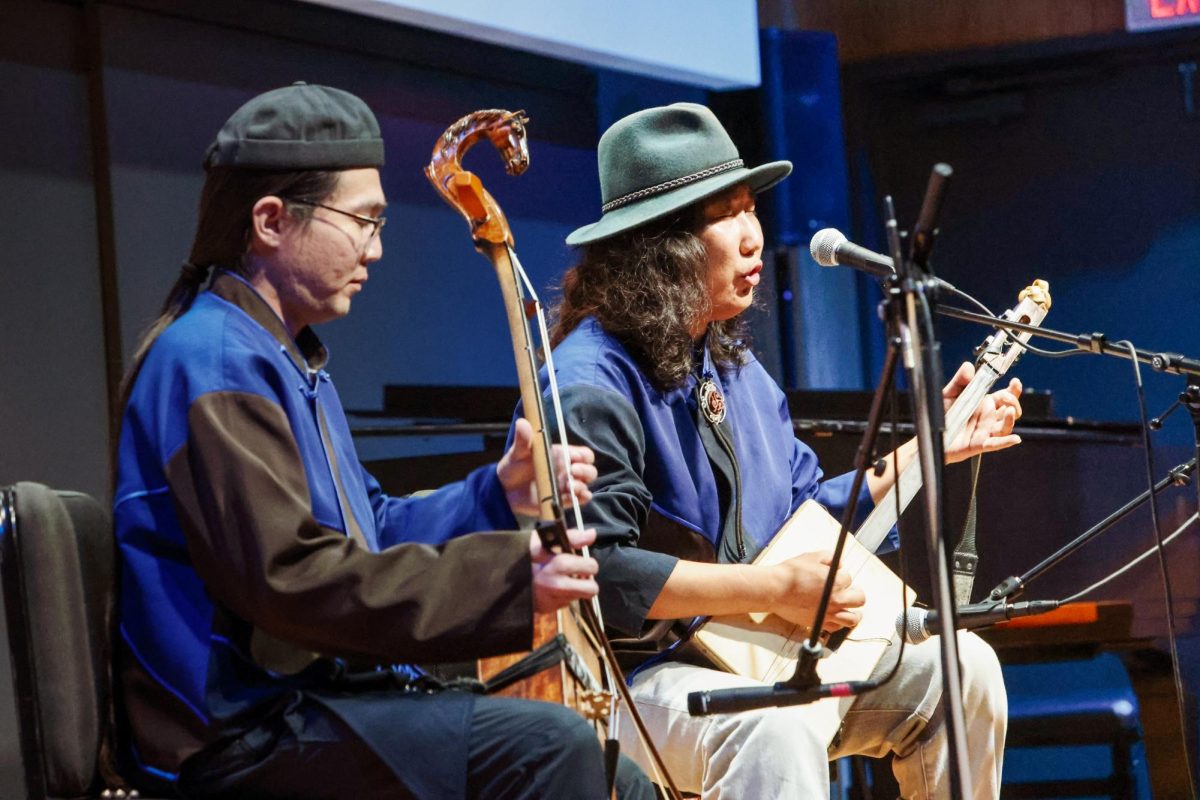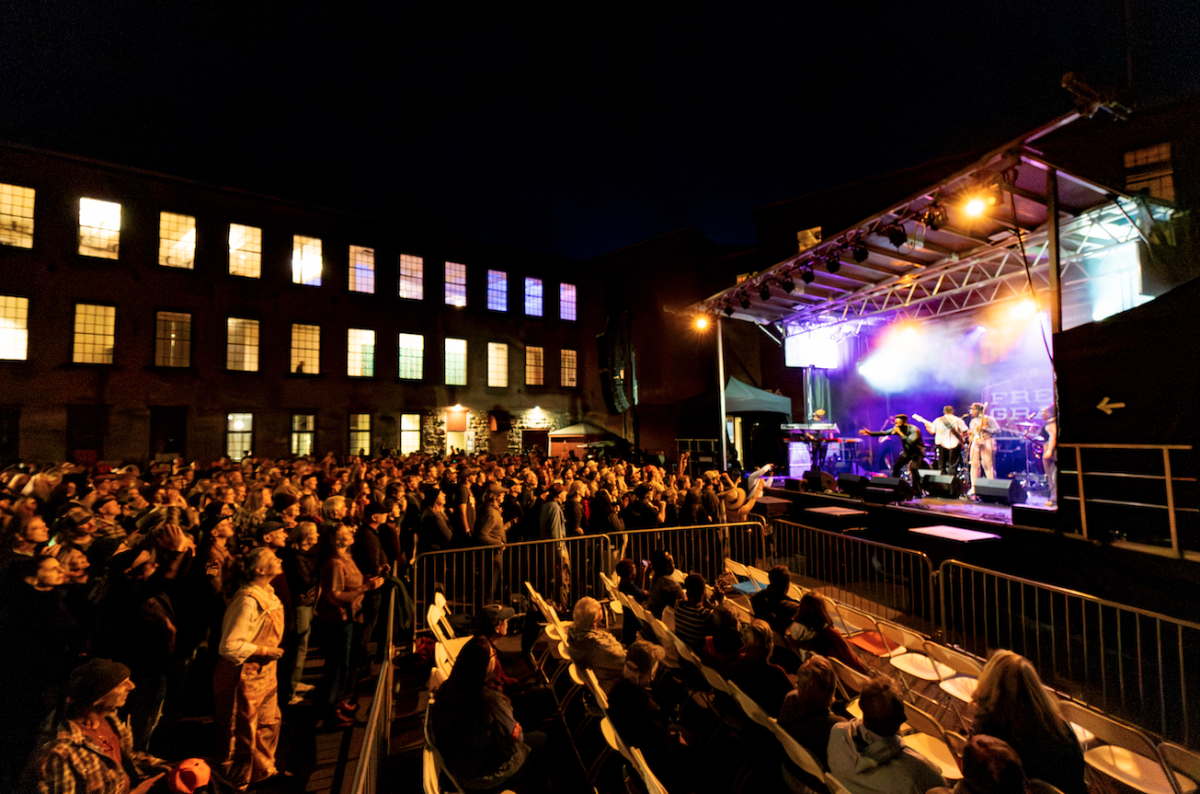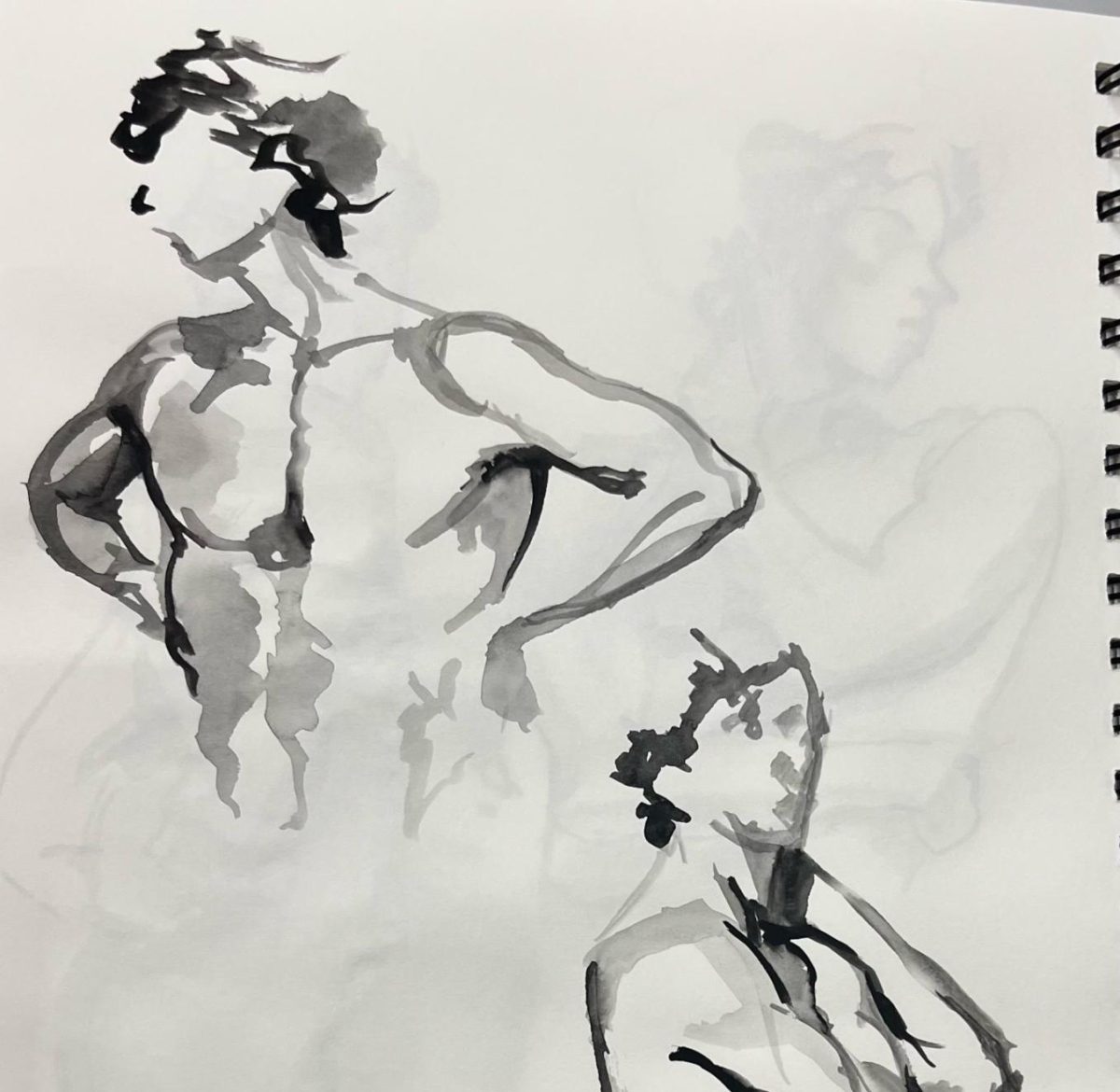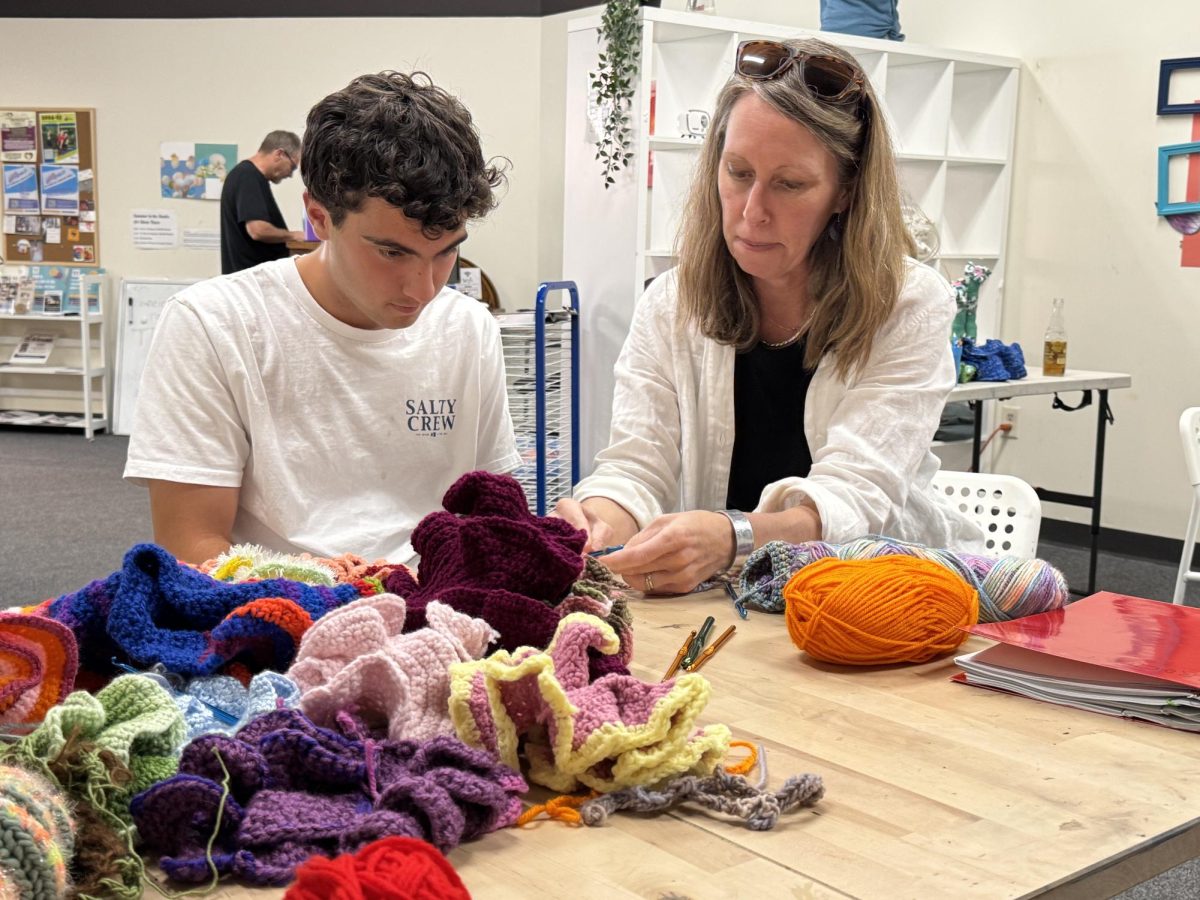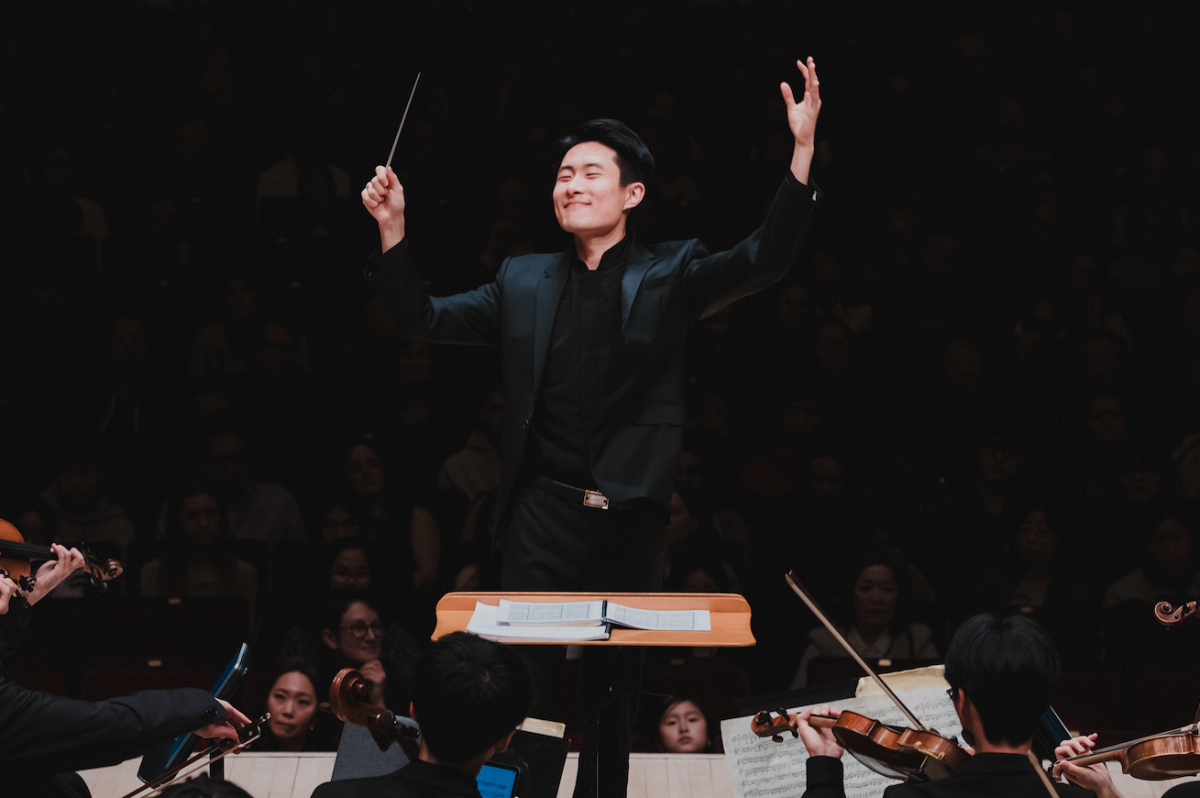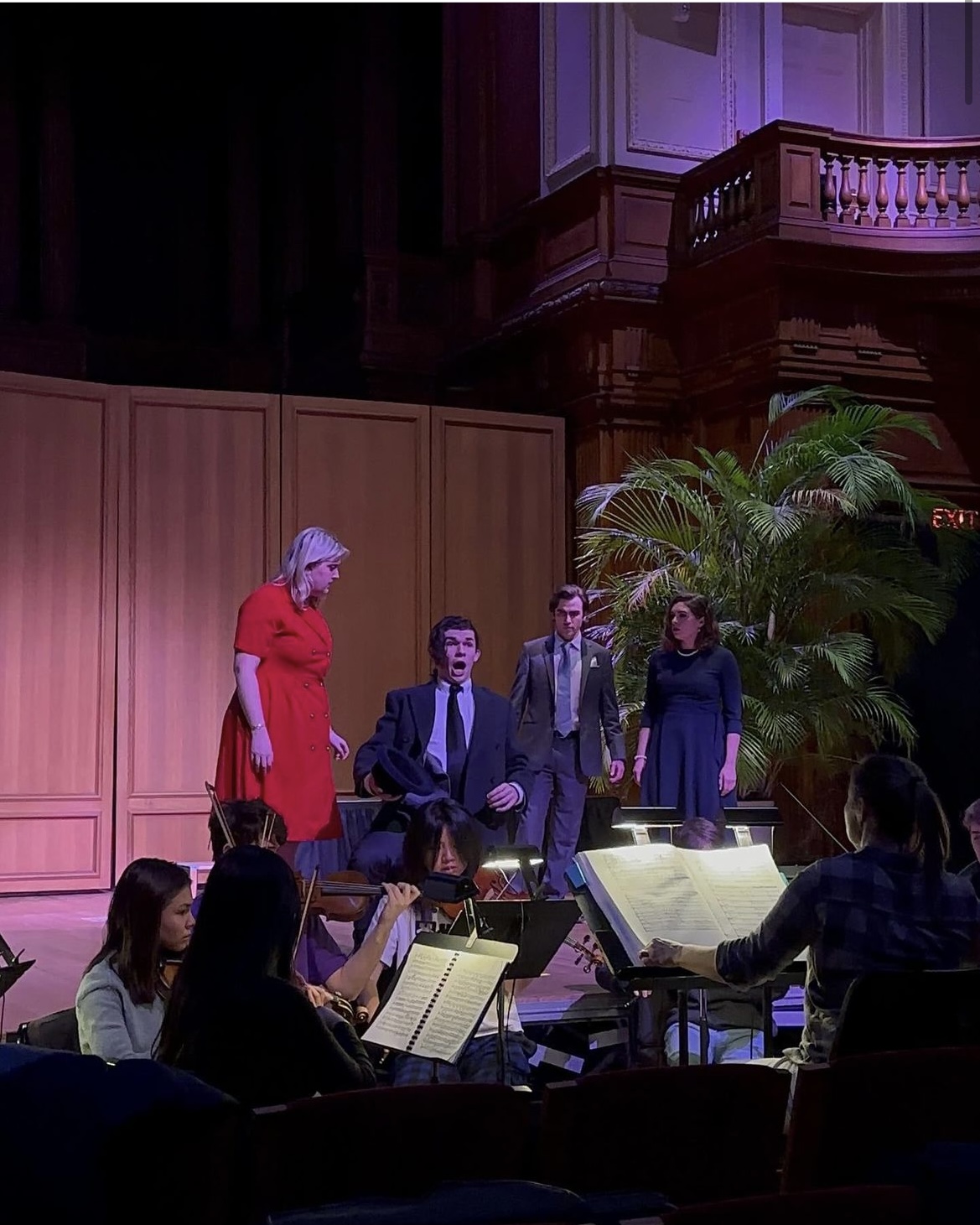
This year, the College’s Opera Workshop was offered as a Winter Study course for the first time since it was first brought to the College in 2014 as an extracurricular activity. Artist Associates in Voice Erin Casey and Paul La Rosa ’02 are teaching the course and directing this year’s production of Mozart’s Don Giovanni, which opened in Chapin Hall on Jan. 23. As in past years, students taking other Winter Study courses are allowed to join the production as an extracurricular activity, but for those with lead roles, participating in the Opera Workshop as a class has given them the opportunity to hone their skills in a way that was not feasible in past years.
Students in Don Giovanni said that this change to the Opera Workshop has been beneficial. “We just have way more convenient practice and rehearsal times,” said actress Molly Arts ’24, who plays Donna Anna. She noted that rehearsals can be held during the day instead of late at night, now that they do not conflict with other Winter Study classes. “We’ve just had a chance to polish a lot more and be more specific with music, rehearsals, and staging.”
The extra time has also given performers the opportunity to challenge themselves as singers. “I don’t usually sing baritone, so I think I’m exploring a different part of my voice more than I ever would, because I’m usually singing countertenor,” said Cooper Johnson ’26 who plays Masetto. “To be able to spend a lot of time doing that — I feel like I’m overall rounding myself out as a performer.”
The Opera Workshop also differs this year in its operatic style. Last year, the Opera Workshop’s final production was another of Mozart’s operas: Die Zauberflöte or The Magic Flute in English, which was a Singspiel — composed of both musical and spoken scenes.
However, Don Giovanni — which follows the story of a sleazy libertine and the consequences of his hedonism and immorality — is different. This opera has no dialogue, but rather uses recitative, a technical term for a style of delivery between talking and singing. The specificity of this style makes it difficult to perform in any language but the original Italian, so every character has a lot more music to learn as there are no pauses for regular dialogue.
For La Rosa and Casey, training student performers in this style was one of their main concerns ahead of the workshop and one of the primary reasons why the transformation of the Opera Workshop into a formal class was so valuable.
“That’s something that has to be taught, and that takes time,” La Rosa said. “I don’t think that would have been something we’d be able to have done if it wasn’t a class.”
Student performers said that the challenge of this singing style is palpable but the benefit of the extra time and organization has compensated for the new difficulty. “It’s definitely more challenging than anything else we’ve ever done,” said Peter Miles ’24 who is playing the opera’s titular role. “It takes four times as long to learn recit, if not more, but it’s been a lot of fun.”
Regardless, Miles — who has performed in the Opera Workshop three times — said it is better as a class. “I just think the stress level has decreased a lot, which has been fantastic,” he said.
Don Giovanni has been adapted by Casey and La Rosa into a 1960s version of the story. Typically performed as a seventeenth century period piece, the decision to modernize the opera was partly due to the workshop’s constrained budget, which couldn’t accommodate the kind of costuming that the original version would require.
Casey explained, however, that she also found great thematic value by transporting the piece into a more recognizable environment.
“This is an old story, but it still makes sense today,” she said, noting that many Mozart operas center the familiar story of a “narcissistic male in a position of power who’s taking advantage of women and not treating them well.”
“I was trying to think who would this guy be in modern day life, and the person that came to mind was Don Draper of the Mad Men show,” Casey continued. “This Don Draper time, the 1960s, was the time when women were going to work with men in offices. It’s the underpinnings for what has led to some real abuse of power that we’re seeing now, like in Hollywood with people like Harvey Weinstein.”
The adaptation of operas into modern stories is common in professional opera houses. “I think that Paul and Erin do a really good job of describing what it would be like to work in a real opera house and teaching us through that kind of lens,” Johnson said. “I feel like I understand what it might be like to go to an average rehearsal.”
Beyond the principal performers, members of the ensemble and the stage managing team are also members of the class and can now have more of a presence during the rehearsals. “It functions more like a professional opera house,” La Rosa said.
The development of the Opera Workshop as a class has inspired Casey and La Rosa to think of other ways of expanding the production in future years. For instance, they envision future versions of the class integrating students from other departments by doing work for credit — studio art students helping with sets, dance students designing choreography, theatre students leading costume and makeup.
“We’re gonna keep on doing our best to serve the community and the student body,” La Rosa said. “We want to give them as many outlets for their artistic expression in what some people consider an archaic art form, but has a lot of contemporary resonance.”
The Opera Workshop’s final performance of Don Giovanni is on Thursday, Jan. 25 at 7:30 p.m. in Chapin Hall.
[Editor’s note: Yona Kruger, who is a member of the editorial board and stars in the opera, was not involved in the writing or editing of this article.]




